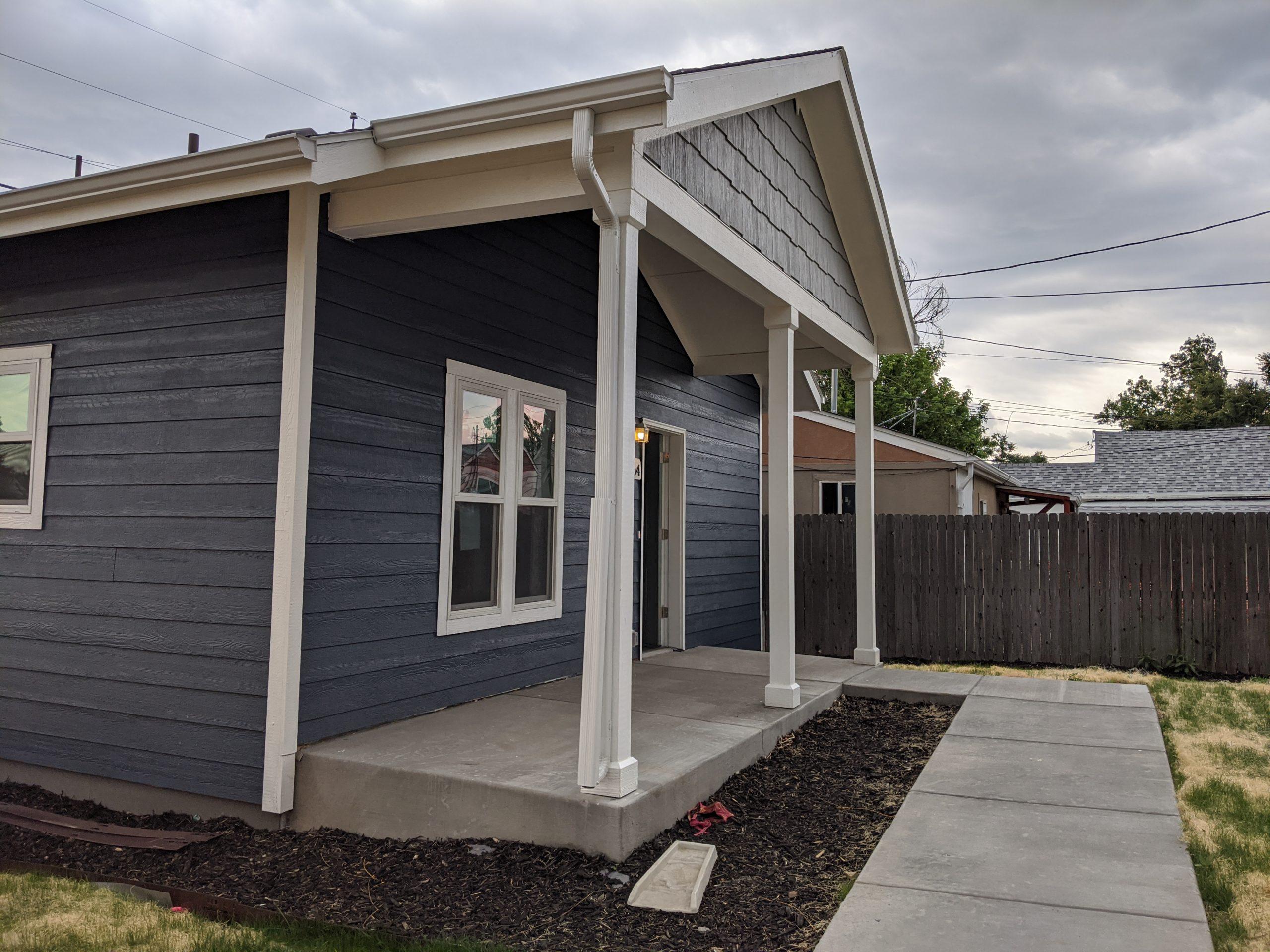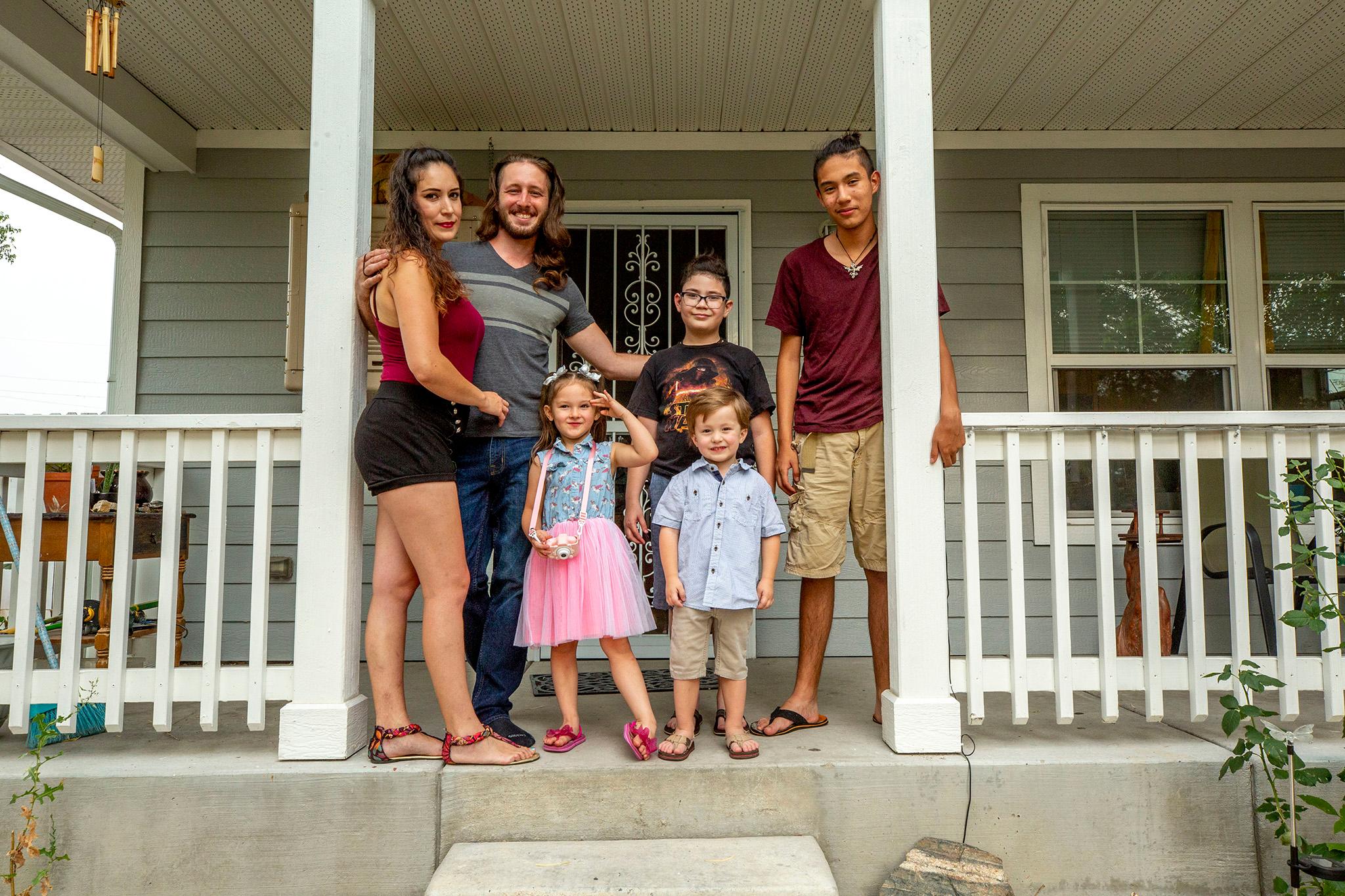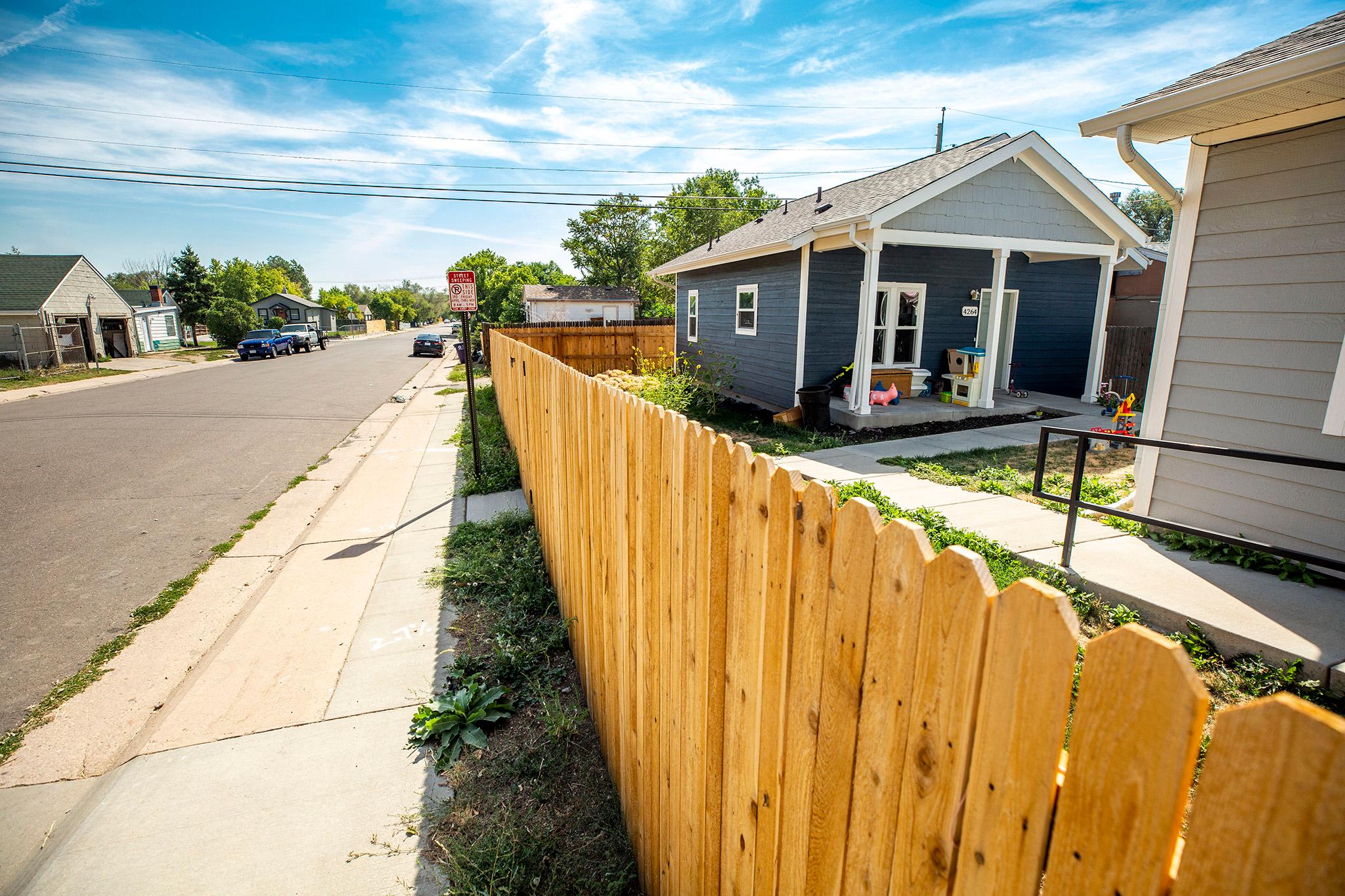A west Denver community group has been navigating the challenges of building granny flats, add-ons to homes that add density and an additional housing option.
Now the West Denver Renaissance Collaborative needs to step over the sidewalk.
After surveying people about their needs in a part of town where many low- and moderate-income families are homeowners, Renee Martinez-Stone, the collaborative's director, hit on granny flats, also known as accessory dwelling units or ADUs. Blueprint Denver, a document adopted last year by City Council, calls ADUs a possible "wealth-building tool for low- and moderate-income homeowners."
Martinez-Stone hopes homeowners will be able to rent out ADUs the collaborative helps build. Homeowners who participate would keep the rent below market rate, creating more affordable housing. In turn, the homeowner would get rental income to help with their mortgage payment and property taxes.
"This is not the end all, be all," said Martinez-Stone, whose background is in planning and urban design. "But I would argue that it's preventing families from being displaced and could prevent homelessness."
Trouble is, ADUs are expensive. One can cost $300,000 and more to build. To get them within reach of west Denver families, Martinez-Stone, who has been working on the project for several years, turned to the nonprofit affordable housing developer Habitat for Humanity of Metro Denver. Habitat helped create five low-cost ADU designs that have been approved by city building regulators and can be used by anyone in the West Denver Renaissance Collaborative program, saving architecture and some permitting fees.
Martinez-Stone also worked on a proposal that City Council approved last year to set up a $500,000 fund from which participants in her program can borrow to build ADUs. More recently, Martinez-Stone partnered with Elevation Community Land Trust. In the land trust model, the land under homes is owned communally and never sold, sparing homeowners a major cost. Participants in the West Denver project would have the option of selling their home and land to Elevation, then buying back their home without the land and using the money left over to build an ADU.
This year, Habitat completed a pilot ADU for Martinez-Stone. Kate Hilberg, Habitat's director of real estate development, said the 450-square-foot one-bedroom in the backyard of a Westwood home that Habitat owned was expected to cost $113,000 to build. But the bill grew by about $30,000 during construction.

Here's where the sidewalk comes in.
Once construction was completed earlier this year, an inspector from the Department of Transportation and Infrastructure arrived for a final review. He determined that 20 yards or so of sidewalk running along the north side of the property needed repairs. In Denver (and elsewhere in the United States), homeowners are responsible for such repairs. The city often uses a construction project as an opportunity to order that work be done.
Hilberg said that based on previous projects, repairing the sidewalk outside the pilot ADU will cost up to $10,000. Without the repairs, the infrastructure department won't sign off on what is known as a certificate of occupancy, or CO, that makes it legal to live at the property. Habitat has appealed the inspector's assessment of the sidewalk, and Martinez-Stone is talking with city officials about whether the repairs are necessary.
Because it's a pilot project, if the infrastructure department won't budge, Habitat will cover the cost. But Martinez-Stone worries about such costs cropping up so late in the process once her program is no longer in the pilot stage.
"Really, at CO, you expect any homeowner, let alone moderate- or low-income, to be able to absorb this?" Martinez-Stone said. "Really? Should this be where we're putting the responsibility on the owner, to fix a sidewalk?"
Martinez-Stone said she's not arguing that neighborhoods shouldn't have safe sidewalks. She said that if the sidewalk outside the Westwood pilot ADU had been in obvious disrepair at the start of the project, repairing it could have been factored into the initial estimate for which a homeowner could have saved, or on which he or she might have based a loan request.
Infrastructure department spokeswoman Nancy Kuhn said her department supports the goals of Martinez-Stone's ADU project. To help keep the pilot ADU affordable, Kuhn said, her department waived requirements that would normally have been imposed when a homeowner undertook renovations. Habitat did not have to replace a narrow sidewalk with one that included a tree lawn or do work on the alley, Kuhn said. But "we did ask the project to replace sections of the existing damaged sidewalk so that it did not present a hazard," she wrote in an email.
"We're not asking for a complete sidewalk replacement, as we would normally require if we were asking them to bring the sidewalk up to current standard," Kuhn added, saying Habitat's $10,000 estimate seemed high.
Whatever the cost, the idea that homeowners should be responsible for the state of sidewalks is baffling to Jill Locantore, who pushes for a more walkable, bikeable and connected city as executive director of the Denver Streets Partnership.
Putting the burden on homeowners has meant that low-income neighborhoods have the worst sidewalks, Locantore said. She called for a re-ordering of spending priorities so that sidewalk repairs can come from the city budget.
Imagine, Locantore said, if individual homeowners were responsible for repairing the pot holes outside their homes. Cars would be lurching along streets that would look like stretches of sidewalk where deserts of cracked and crumbling pavement occasionally meet an oasis of smooth, wide path that runs just the length of a new or renovated home.
"We end up with this ridiculous patchwork that does no good for somebody who's trying to walk from point A to point B," Locantore said. A sidewalk is "considered an amenity. Like, the only thing people want to do with a sidewalk is pace in front of their house."
Three years ago, Denver launched an extensive sidewalk repair program. While it continued to place the burden of maintaining sidewalks on property owners, the city offered discounts and payment plans to homeowners who were asked to undertake repairs as part of the sidewalk upgrade and who met income restrictions. The assistance is offered only to homeowners in the parts of town currently targeted for repairs, which this year are North Capitol Hill, Capitol Hill, Speer, Cheesman Park, Country Club, Congress Park and Cherry Creek.
Locantore said the city has been "excruciatingly slow" in rolling out the sidewalk repair program.
Good sidewalks, Locantore said, should go hand-in-hand with affordable housing and density, ensuring people can get around without the expense of a car.
"It's the city policies that have unnecessarily created inequities and the supposed, artificial conflict" between sidewalks and affordability, she said.
Hilberg said west Denver's has not been invested in, and asking homeowners to upgrade the area's sidewalks is unfair. She argues it creates a burden some families won't be able to assume, keeping them out of Martinez-Stone's ADU program.
"Most people are trying to secure an asset they've worked decades to own," Martinez-Stone said. "They've been cheated out of quality sidewalks. They should not, when they're trying to stay in the neighborhood, be presented with this bill."

The four-bedroom house and the ADU were sold under Habitat's own affordable program to Phillip Stonaker, who moved in recently with his wife and their four children.
The children, who range in age from 3 to 14, had been sharing a bedroom in a two-bedroom apartment before Habitat made it possible for the family to become homeowners.
"It's been a struggle, bouncing around in ... apartments, trying to survive," said Stonaker, who works in construction.
Now that they are homeowners with an ADU, Stonaker said he and his wife hope to rent their accessory unit at low or no cost to friends they know are struggling. Stonaker said he hopes Martinez-Stone's ADU program will be able to flourish because it can help "homeowners help others."













